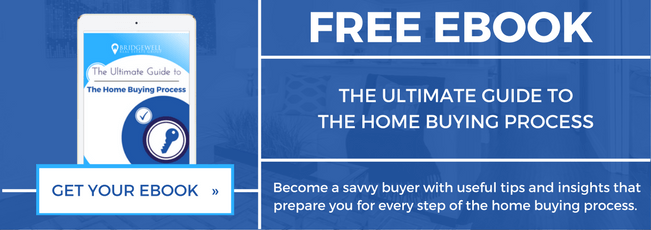Closing Date Real Estate
Tips for a Successful Completion (For Sellers)
Closing Date Real Estate
The closing date in real estate is the day that money is transferred to the seller and the buyers become the registered owners fo the property as per the Land Title Office. The closing date is also known as the completion date in real estate.
Dates in real estate, such as completion (aka closing) and possession, are a key part of the negotiation process and set the timeline for the entire process.
This blog goes over key definitions of dates in real estate, explains the closing date process, and important tips FOR SELLERS to help make the closing process smoother. Keep reading for everything you need to know about the closing date in real estate for sellers!
Important Dates in Real Estate
Completion Date (Closing date)
The completion date in a real estate contract is the date the property is transferred, and the day the money for the purchase is transferred from the buyer to the seller.
Your lawyer/notary will facilitate your completion day, and will coordinate with the other parties lawyer/notary to ensure everything is prepared on time. It is important that the completion date DOES not fall on a weekend or holiday, as it has to be on a working business day.
Possession Date
The possession date in a real estate contract is the date the Buyer has the right to take possession of the property.
Adjustment Date
The adjustment date in a real estate contract is the date that the financial adjustments are calculated for; these items could include property taxes, maintenance fees, water and sewage, rents, & damage deposits.
Generally the adjustment date and the possession date are the same day – This is because the same day that the buyer takes possession is the same day they would expect to be charged for services and costs related to owning the property.
Tips for a Successful Closing and Possession
Here are our top 10 list of things that sellers can do to assist in a successful close, and help the buyers to start their new home off right:
Consider having the place professionally cleaned, even if it’s not in the contract.
Everyone has a different standard of clean, but if you have a receipt to show that you’ve paid for a third party to come in it takes the pressure off of you.
Clean up and remove all garbage and debris, and don’t leave behind any of your own belongings.
When we’re helping a buyer to purchase, we always put a warrant in that the place needs to be free of all garbage and debris. For sellers, the new homeowner will be eternally grateful if they walk in to a clean home. So leave it exactly how you would expect your new home to look like – karma!
Make sure the appliances are in proper working order, and unless otherwise agreed to, the same ones as when originally viewed by the buyer.
If an inspection was done, typically the inspector will take pictures of the appliances – so they’ll know if you swapped out your A grade appliances for C grade ones.
If something broke between when the buyer viewed it or now, fix it. The home should be in substantially the same condition as when the offer was made.
If your clothes dryer breaks between when the deal went firm and the possession date, fix it. They will find out eventually, and then you’re all in for a headache. There is a term in the contract that the property does need to be in the same condition as when viewed. Whatever it is, it’s your responsibility as a seller to fix it.
Leave all the keys with your realtor or on the table at your home, preferably with labels to what is what.
Make sure to pass over all the keys, and don’t leave any out. Although it is not required, if you have a lot of keys it is always nice to label what each one is for the new buyer so that they don’t have to go around testing them all and try to figure it out for themselves. If there are multiples of a key, leave them in a pile together. Do your best to make it as simple as possible for them.
Read through the contract another time at least a week before closing to review what’s included, what’s not, and what warrants and terms were written – then make sure you’ve followed through with it all.
You don’t want any surprises just as much as the buyer doesn’t. Have your realtor review the contract with you prior to possession so that you can be confident that everything you are obligated to include or do is already done.
Make sure you’ve given notice to utility and cable companies that you’re moving to a new address.
This one is pretty straight forward, but something we notice a lot of sellers do is they forget to return their cable box! The new buyer doesn’t need it, and in many cases when you return it to your cable company you get money back.
If your property was tenanted, make sure the tenants are aware of what your obligations are to the buyer.
Always try to have the day the tenants leave at least a couple of days before the possession date, so that prior to closing you can assess any damages and ensure that they’ve moved everything out. You’ll want to make sure they didn’t take anything they weren’t supposed to, and that the place is nice and tidy for when your buyer comes to view the place.
If it’s fixed to the wall then it’s probably included and needs to stay. AKA don’t remove the light fixtures, and keep the lightbulbs in.
If something is fixed to the wall, it is probably included unless specifically mentioned. Don’t take the light bulbs, don’t remove the covers for the light fixtures, and definitely do not remove the light fixtures and take them to your new place. If you’re unsure of something , like a wall mount for a TV, then ask your realtor.
Leave a note with anything you feel that they would want to know about your home and the area.
Little things like this can really make the buyer feel right at home. If you feel there’s something they need to know – like maybe when the flowers start to bloom and instructions to take care of them – then write it down. They’ll want to love your home just like you did, so if you bring out the little details in advance it will probably make their special day even better.
—
Whether you’re a buyer moving in to a new home, or a seller moving out, both parties involved in the transaction – including their realtors – will incur less stress when cooperating in a fashion listed above!




